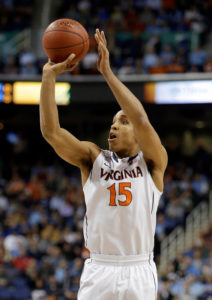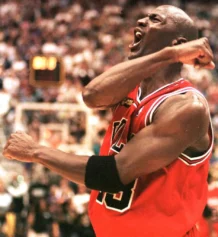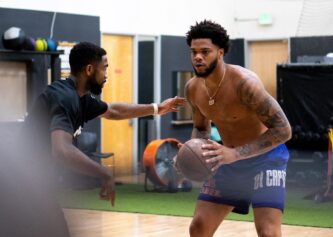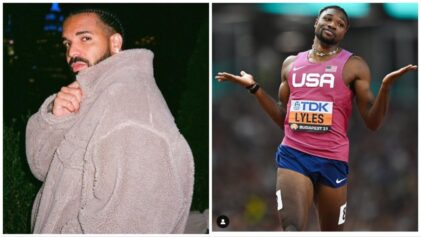
The junior guard from the Atlanta area, who has been projected by many to be a second-round selection during this June’s NBA Draft, says no. Upon entering college, he rejected Harvard in favor of Virginia, so he’s familiar with making tough choices.
His reason for staying? He wants to earn his master’s degree in public policy.
“He’s unique,” Virginia coach Tony Bennett said.
Unique in more than one way, it turns out. Athletes often view sports as a way out of hardship. Brogdon has no such concerns.
His mother is a psychology professor at Morehouse College in Atlanta and his father is a lawyer and a mediator.
But that’s not it for Brogdon. Countless other players with less talent and whose parents made a good living have jumped at the opportunity to get into the league over studying in college.
Indeed, the dream of almost all players is to play professionally. The trend recently has been to get there as soon as you can. The NBA plays into this issue, drafting players on “potential” based on what they believe they can do when/if they mature, which essentially encourages young players to go before their time.
It’s an NBA rule the owners conceived, one that is diminishing college basketball because players of Brogdon’s talents leave early. There is more shuffling of rosters in college than there is in the NBA, all because players do not stick around. One-and-done is the norm, two-and-done is fashionable. Hardly ever do the top players who know they will be drafted bypass that chance for their education.
That’s what Brogdon has decided.
Sometimes leaving early works. Looks like Andrew Wiggins is going to be a fine NBA player after just one inconsistent season in college at Kansas. And there are many other similar examples.
But there are too many examples of players who leave college early, before polishing their skills and building their bodies. And they end up out of the league in three years. . . without their college degree. The argument could be made that had they stayed, their understanding of the game could have increased, their body could have developed, their minds could have matured. . . all elements that could extend their pro career. And, if they took advantage of it, they would have learned more in the classroom.
Brogdon will not have that problem. He does not pontificate in depth on why he has decided to bypass this year’s draft. He has simply said he wants to earn his master’s. Kudos to him.
As a player, he has improved each year and leads UVA into the NCAA Tournament that begins today. For Virginia, the tournament starts Friday night as a No. 2 seed in the East Region against 15-seeded Belmont.
Brodgon is the team’s leading scorer at 13.9 a game. He scored 26 points in Virginia loss in the ACC Tournament. Wasn’t his fault; he scored 22 after halftime in a valiant effort that did not get unnoticed.
“He just stays steady,” Bennett said. “I think that his demeanor shows that. He’s wise beyond his years. That maturity level — you look at him, this is a mature young man in every way.
“I think his leadership has probably been the thing that has really set him apart this year even more than last year.”
He’s even honest about his assessment of the Cavs’ chances of winning it all. He has not and would not mislead. “I’m not sure about that,” he said about winning the tournament. “I think we are a team that can always be competitive due to our style of play, the type of defense we play. And I think over the years Virginia will continue to get stronger and stronger with Coach Bennett as the coach and him getting better and better talent. I think that’s how it will work.”
Brogdon has worked out nicely for the Cavs, who have benefitted from his talent, insight and leadership. That leadership extends to his decision to bypass a chance for the NBA to further his education.
“A different kind of guy,” Virginia teammate Justin Anderson said of Brogdon.
And talented, too. “He’s so underrated,” Anderson added. “A lot of people don’t realize how great he is, as far as being aggressive on offense. His one-on-one game is great.”
Those talents, barring something unforeseen, will get the 6-foot-5 shooting guard in the NBA. . . one day. That a kid who dreamed of the league is patient enough to put it off for his education, hopefully, will be a benchmark for many others to emulate.


